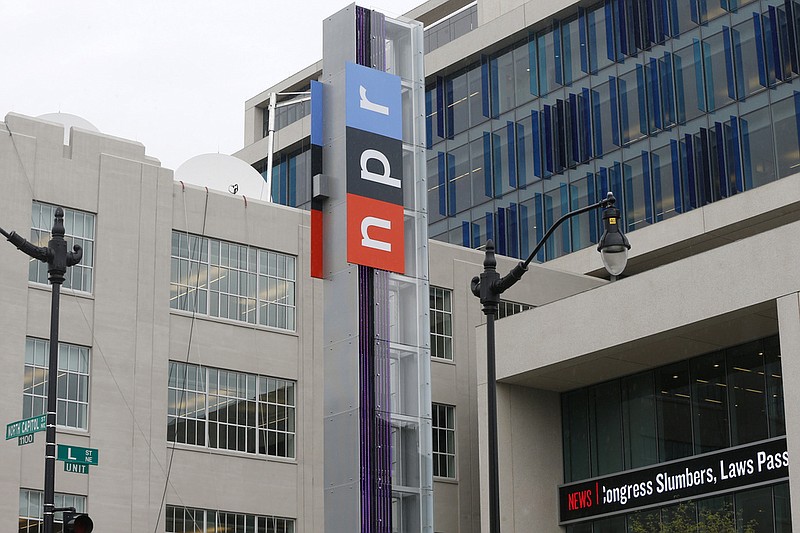NPR has indefinitely halted sharing "fresh" news and updates across its 52 official Twitter feeds -- effective Wednesday -- with many NPR affiliate stations across Arkansas following suit.
The decision Wednesday came after the social media company labeled the independent, nonprofit media organization as "state-affiliated media" and then "government-funded media," according to a statement by NPR.
Other partner and affiliated stations of NPR across the country have joined in leaving the platform in different ways after the label issue last week.
Leaders with NPR worked to explain to Twitter CEO Elon Musk why the labels were inaccurate and misleading.
Musk first labeled the station as a state-affiliated group, then asked NPR how it functioned, suggesting that he may have "gotten it wrong," according to NPR's coverage.
NPR explained its function as a private media group only to be labeled as a government-funded outlet shortly after.
"I would never have our content go anywhere that would risk our credibility," NPR CEO John Lansing told NPR correspondents.
"At this point I have lost my faith in the decision-making at Twitter," Lansing told NPR's David Folkenflik. "I would need some time to understand whether Twitter can be trusted again."
According to data provided by NPR, less than 1% of its $300 million annual budget comes from the federally funded Corporation for Public Broadcasting.
PBS was also labeled incorrectly by the social media company and has since left the platform, too.
When asked what Musk thought of NPR's decision to leave the platform Wednesday, he did not initially reply to the correspondents from the organization.
Instead, Musk took to Twitter to share an image of the email from NPR, with a caption that read: "Defund @NPR."
Musk has since suggested willingness to change the label to "publicly funded," which would apply to the other incorrectly labeled institutions as well.
However, Lansing has made it clear that the organization will not immediately return to the platform.
Lansing also highlighted that Musk's attention seems to be focused on the wrong "elements" of the issue.
The NPR leader said the focus is independence.
In NPR's coverage, Folkenflik wrote: "NPR's board is appointed without any government influence. And the network has at times tangled with both Democratic and Republican administrations."
The media organization finalized its departure from the social media company by tweeting links to where users can find content from NPR down the line.
"NPR produces consequential, independent journalism every day in service to the public," the tweet said.
Those working with NPR have been told they can choose whether or not to continue to use Twitter for work.
Jonathan Seaborn with the University of Arkansas at Little Rock's public radio station also commented on the situation.
"After careful consideration, UA Little Rock Public Radio has made the decision to join NPR and temporarily halt the use of our institutional Twitter account," Seaborn said. "However, we will not be asking our journalists to discontinue their use of the platform."
Seaborn added that the decision to leave Twitter has been conflicting given how useful engagement can be on the platform.
"The way that you can interact with your audience and with your sources is unique on Twitter, so we've been wrestling with it," Seaborn said Friday in a phone interview. "The mislabeling of NPR and now PBS and other institutions feels deliberate. There doesn't seem to be a real attempt on Twitter's part to correct the issue or have a constructive dialogue around the issue and we're concerned both at the national level and at the local about, kind of, a de-evolution of the platform. As the platform becomes more the space for disinformation, does it potentially harm the credibility of news organizations who provide content for the platform?"
Coverage by NPR said the organization is giving the social media company a "two-week grace period so the staff who run the Twitter accounts can revise their social media strategies."
Other stations who have not been active on the platform in the past are continuing their silence in support of NPR.
"We are virtually inactive on Twitter anyway," Arkansas State University's public station KASU's station manager Mark Smith said. "I know there are a lot of public radio journalists and media journalists in general who use Twitter a great deal. We fully support NPR in what they've chosen to do and we support any other stations in what they choose to do as well."
Seaborn and Smith reiterated the freedom of each station to continue to navigate its plan and support on a free and independent basis.
"Twitter's mislabeling of NPR goes against our core values," Seaborn said. "UA Little Rock Public Radio stands with NPR in refusing to post on Twitter until the platform's leadership ends its practice of unfairly maligning NPR's editorial independence."
The number of radio affiliate stations leaving the platform is growing, with stations from Minnesota, Kentucky and other states joining over the weekend.

